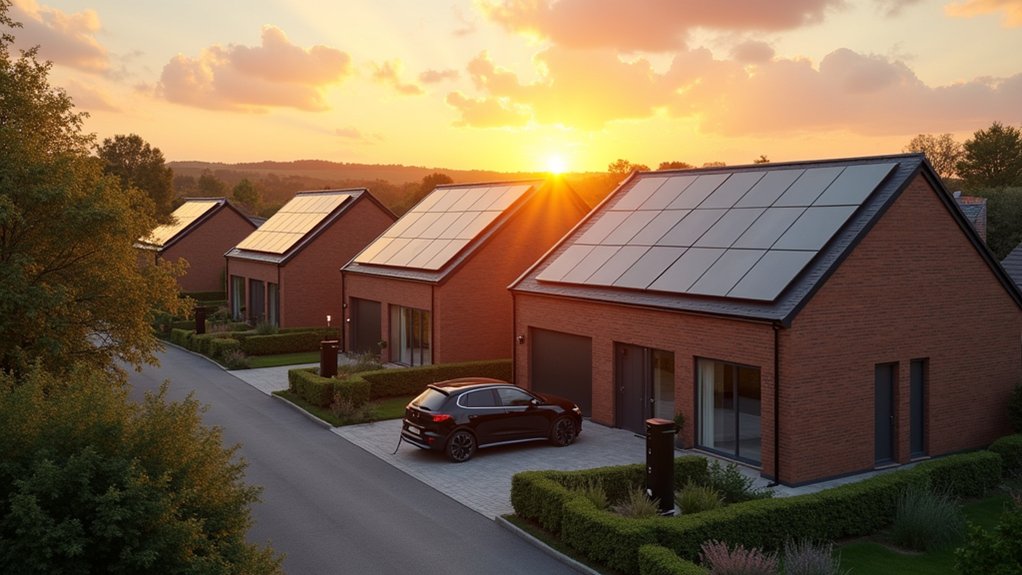A seismic shift in England’s housing sector is approaching, with the UK government poised to mandate solar panel installation on nearly all new homes by 2027. This sweeping proposal, expected to be formally announced imminently, would exempt only 1% of new properties, with 80% required to install solar panels covering 40% of the building’s ground area. The remaining 19% would still need panels, albeit in smaller quantities. This represents a significant intervention in residential construction standards, aligning with broader national net zero emissions targets.
The financial implications are considerable for both builders and buyers. Installation costs will increase construction expenses by approximately £3,300 for semi-detached or terraced houses and around £4,000 for detached properties. However, these upfront costs appear relatively modest when considering the potential savings. Homeowners could recoup these expenses within about four years through reduced energy bills, with average households saving more than £440 annually. Some reports suggest savings could reach approximately £1,000 per year, representing a substantial portion of typical utility expenses. The government is preparing government-funded loans and grants to assist existing homeowners who wish to install solar panels on their properties.
Beyond individual financial benefits, the mandate strengthens national energy security by reducing external energy dependencies. The residential generation capacity created will contribute meaningfully to carbon emission reductions from the housing sector while enhancing local energy resilience. This initiative is expected to promote energy independence for households across England. It’s difficult to overstate the significance of decentralizing energy production on this scale.
The policy emerges amid ongoing debates within Labour Party circles about net zero commitments, with former Prime Minister Sir Tony Blair having criticized aspects of the current strategy. Energy Security and Net Zero Secretary Ed Miliband will oversee implementation, which provides the construction industry approximately two years to prepare for this fundamental shift in building practices.
The mandate’s integration into the Future Homes Standard framework signals the government’s commitment to transforming housing energy efficiency standards. With 99% of new builds affected, the ripple effects will extend throughout construction supply chains and reshape consumer expectations for residential energy performance.









